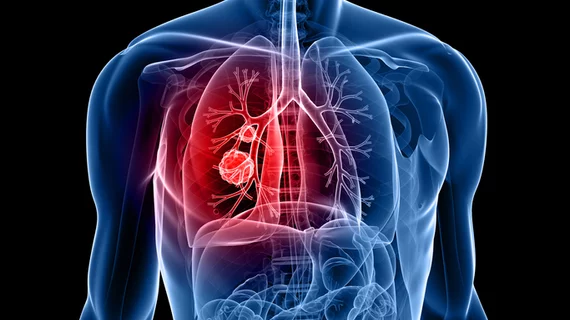Cancer, cancer-related death much more common among heart failure patients
Heart failure (HF) patients face a higher risk of cancer and cancer-related mortality, according to a new analysis in JACC: CardioOncology.[1]
The study’s authors noted that the exact relationship between HF and cancer remains unclear.
“On the one hand, cardiovascular disease occurs more commonly in patients with malignancies compared with those without, and is more frequent in cancer survivors than in the general population, regardless of the age at which tumors are diagnosed and treated,” wrote lead author Edoardo Bertero, MD, a cardiovascular specialist with the University of Genoa in Italy, and colleagues. “On the other hand, HF patients might have a higher risk of incident cancer compared with individuals without HF, and emerging evidence suggests that HF represents an oncogenic condition.”
Bertero et al. tracked electronic health records data from more than 104,020 patients with HF and another 104,020 control subjects. All patients were 50 years old or older and received care from 2005 to 2013. Follow-up data for at least five years was available for all patients, and they had no history of cancer for at least three years before the study began. The HF patients and control subjects were matched 1:1 based on age, sex and other key characteristics.
Overall, the team found, the incidence rate of cancer was 21.36 per 1,000 person-years among HF patients. Among control subjects, the rate was 12.42 per 1,000 person-years.
Diving a little deeper, Betero and colleagues noted that malignancies in the respiratory tract were “among the cancer types whose incidence was most affected by HF.” Also, prostate cancer was less common among younger HF patients, a statistic that “might reflect a less frequent screening for prostate cancer by measuring prostate-specific antigen in HF patients.”
Cancer mortality was also significantly higher among HF patients. There were 103,608 patient deaths in all over the course of the analysis, but the cause of death could only be confirmed for 74.5% of them. Among those patients with a confirmed cause of death, 4,738 HF patients died from cancer and 1,208 control subjects died from cancer. An additional 9,703 HF patients died from HF, and 2,872 control subjects died from HF. A competing risk analysis confirmed the link between HF and cancer mortality.
“In this community-based cohort, individuals with HF had higher cancer incidence and mortality compared with matched control subjects,” the authors wrote. “The excess risk applied to both males and females and virtually all types of solid and hematologic malignancies.”
Related Heart Failure Content:
Telehealth provided value for heart failure patients during COVID-19 pandemic
AI-powered ECG analysis could boost care for patients with hypertrophic cardiomyopathy
CRT-D associated with major improvements among older HFrEF patients
Reference:

